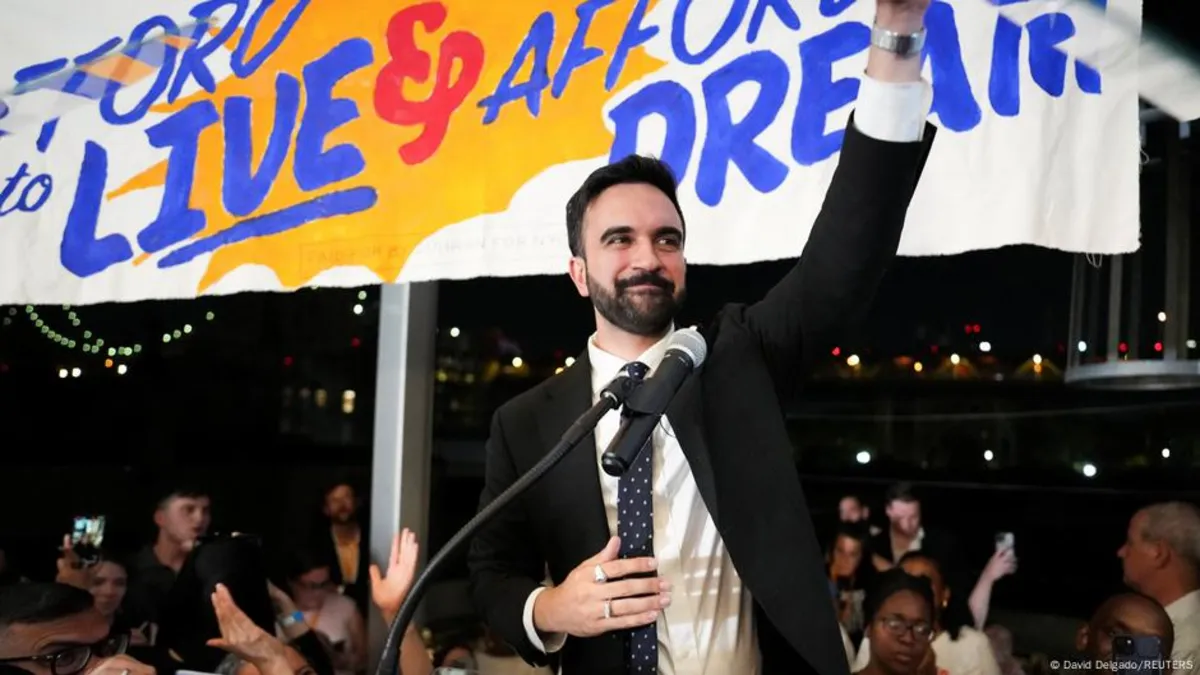
The largest city in the United States, New York, is set to conclude voting in its 2025 mayoral election on November 4. The decision of the current Democratic mayor, Eric Adams, to withdraw from the race in September has paved the way for a new leader to emerge. The candidates vying for this influential position include rising Democratic star Zohran Mamdani, activist and unopposed Republican nominee Curtis Sliwa, and former New York Governor turned independent candidate Andrew Cuomo.
Curtis Sliwa, known for his conservative values and as the founder of the vigilante group, the Guardian Angels, presents himself as a populist candidate. His background includes hosting radio talk shows, and he aims to address crime prevention in New York City. On the other hand, Andrew Cuomo, who resigned from his governorship in 2021 amid sexual misconduct allegations, is running as an independent after losing to Mamdani in the Democratic primaries. Cuomo is often viewed as a centrist in a city that is predominantly liberal.
However, it is Zohran Mamdani, the frontrunner, who has captured significant attention. Born in Uganda to Indian descent parents, Mamdani's upbringing was marked by privilege, yet he recognizes that his life experience is not typical of many New Yorkers. His rapid political rise began with his election to the New York Assembly in 2020, and by October 2024, he announced his mayoral campaign, eventually securing 56.4% of the vote against Cuomo.
Zohran Mamdani is not only a politician but also a hip-hop enthusiast who has engaged in music production and performance. He identifies as a Muslim and is an avid supporter of various sports teams, including the New York Mets, New York Giants, and Arsenal. His campaign is heavily focused on housing affordability, a pressing issue in a city where a recent Deutsche Bank report highlighted that it has the highest inner-city rents globally, averaging $8,500 for a three-bedroom apartment.
Mamdani's commitment to housing affordability is a cornerstone of his platform. His proposals include freezing rents on rent-stabilized units, increasing affordable housing availability, and imposing stricter regulations on private landlords. As a member of the Democratic Socialists of America, his policies extend to advocating for a flat 2% tax on high earners, raising corporate taxes, introducing free bus services, instituting a $30 minimum wage, and expanding public childcare services. Mamdani emphasizes the importance of connecting with the struggles faced by everyday New Yorkers, stating, "You have to speak in a language everyone can understand and see themselves in."
Despite his popularity, Mamdani faces criticism for his left-leaning policies, which some perceive as polarizing, even in New York's liberal landscape. Critics argue that his approach mirrors the divisive rhetoric often attributed to former President Trump. Additionally, Mamdani's long-standing support for Palestinian rights has raised concerns within segments of New York’s Jewish community, though his support is not universally rejected.
Business leaders have also voiced their apprehensions. High-profile investor Bill Ackman expressed concerns on social media that Mamdani's anti-business policies, including increased corporate taxes, could jeopardize jobs and drive companies out of the city.
With a population nearing 8.5 million and attracting approximately 65 million visitors annually, New York serves as a vital cultural and financial hub. The role of mayor comes with a substantial budget of $116 billion and responsibilities that range from overseeing schools to managing the police force. The significance of this position extends beyond city limits, as many former mayors have attempted to run for the presidency. If Mamdani secures the position, his interactions with Trump, who has labeled him a “Communist lunatic,” are likely to become a focal point in ongoing U.S. political discussions.
In summary, the upcoming New York mayoral election is a critical juncture for the city, with candidates who reflect diverse ideologies and priorities. As election day approaches, the implications of the candidates' policies will shape not only the future of New York City but also resonate on a national scale.